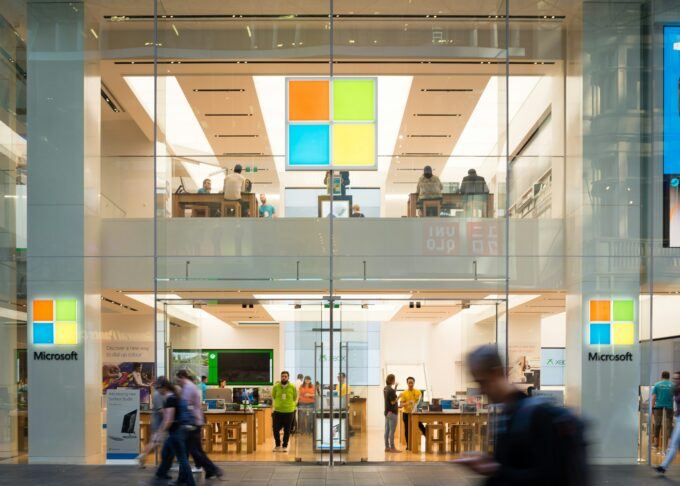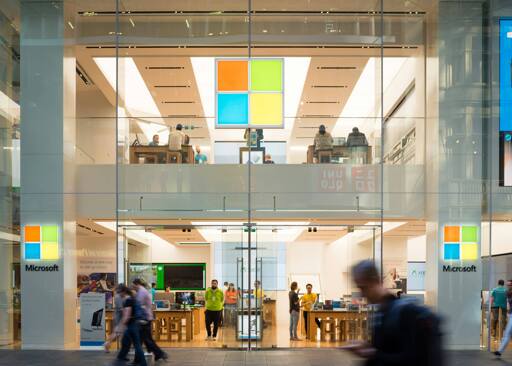
Image by Valent Lau.
In New York last week, Indonesian President Prabowo Subianto embodied a contradiction that cannot be ignored. At the United Nations General Assembly, he delivered a fiery speech condemning Israel’s onslaught in Gaza and declaring Indonesia’s unwavering solidarity with the Palestinian people. During the same visit, he awarded Bill Gates Indonesia’s highest civilian honor, the Bintang Jasa Utama, praising the Microsoft co-founder’s contributions to health and education.
The juxtaposition was staggering. To thunder against Israeli atrocities at the U.N. while celebrating the co-founder of Microsoft — a company whose technology has been weaponized in those very atrocities — is not statesmanship. It is moral doublespeak.
Microsoft’s entanglement with Israel’s military is now undeniable. The company has confirmed it provides cloud and artificial intelligence services to Israel’s Defense Ministry. Investigations by The Guardian and +972 Magazine show that Microsoft’s Azure platform has been used to store and process surveillance data on Palestinians, later employed to select bombing targets. These “targets” included civilians: three young women and their grandmother killed in Lebanon, entire families erased in Gaza.
Inside Microsoft, employees have fought to expose this complicity. A Palestinian staffer, Ibtihal Aboussad, disrupted the company’s 50th anniversary celebration to accuse executives of having “blood on their hands.” Dozens of others staged sit-ins and encampments at headquarters, some dragged away in handcuffs. Four were fired. Their demand was clear: stop supplying Israel with the tools of oppression.
Microsoft’s response was equivocation. President Brad Smith admitted that Israel had misused some services and suspended certain “bespoke” contracts. Yet in the same breath, he reassured Israeli officials that these moves would cause “no damage to the operational capabilities of the IDF.” Translation: business as usual.
And yet this is the company whose co-founder Prabowo just honored — in the very city where he had thundered about Palestinian suffering. Indonesia cannot have it both ways. You cannot denounce genocide at the United Nations and decorate its enablers in Midtown Manhattan. To do so is not solidarity. It is betrayal.
Yes, Bill Gates’ foundation has invested billions in Indonesia’s health system, vaccines, and education. That contribution is real. But philanthropy does not absolve complicity. To celebrate Gates while ignoring Microsoft’s role in Gaza is to elevate charity over justice, optics over principle. It is to say that Palestinian lives matter — but not enough to risk offending a billionaire benefactor.
Indonesia has long wrapped itself in the mantle of Palestine’s cause. It refuses diplomatic ties with Israel, boycotts Israeli products, and consistently champions Palestinian statehood at the U.N. Yet when Western capital comes calling, those principles curiously fade. The Gates Foundation’s largesse buys not just goodwill but silence.
This duplicity is not uniquely Indonesian. Universities in the U.S. accept Gates Foundation grants while their students demand divestment from Israel. Western governments denounce occupation while signing contracts with the very firms that sustain it. The Palestinian struggle has become the ultimate test of moral consistency — and too often, the world fails.
But Indonesia’s failure stings more sharply because of what it claims to be. As the largest Muslim-majority nation, it positions itself as Palestine’s defender on the global stage. Yet Prabowo’s double act in New York — condemning Israel at the U.N., then decorating Gates in a luxury hotel — makes a mockery of that claim.
What message does this send to Palestinians in Gaza, starving in refugee camps, mourning children buried under rubble? That Indonesia’s solidarity ends where Western philanthropy begins. That Palestinian lives can be defended in speeches but traded away in ceremonies.
If Jakarta truly means what it says about justice, it must extend its scrutiny beyond governments to corporations. That means interrogating partnerships with companies like Microsoft, demanding accountability, and refusing to launder reputations through state honors. Anything less is complicity dressed up as diplomacy.
In New York, Prabowo had a choice. He could have stood firmly with Palestine, without compromise. Instead, he chose the safer path: moral clarity at the podium, moral cowardice at the banquet hall.
History will remember the contradiction. And so will Gaza.
The post Standing with Palestine, Honoring Microsoft? A Contradiction in New York appeared first on CounterPunch.org.
From CounterPunch.org via this RSS feed


